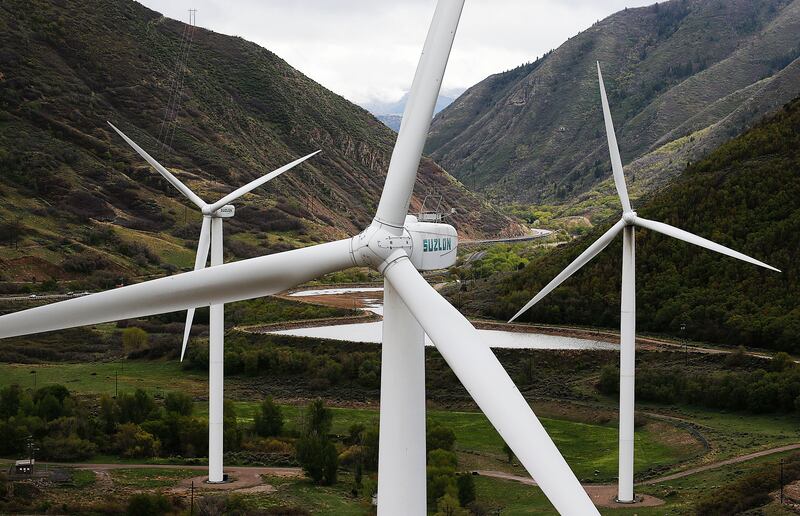Conversations around climate can be contentious. We may believe we haven’t been heard, that we spent the whole time talking past each other. It is easy to come away convinced the other person is ignorant, selfish or greedy, or that they believe trees matter and people don’t. Yet, if you had spent the time talking about something else, you probably would have left with a smile, certain you had been in the company of a decent, caring, intelligent fellow American.
What is the disconnect?
In his recent op-ed, “How do we improve our dialogue?” Steve Hitz writes, “In a world of many voices ... it seems the silent space between dialogue no longer exists. You know, that space where you actually ponder another’s opinion before defending your own? That space.” And so it is that in many of these conversations, we’re ducking the real issue. The actual disagreement we’re having is which we fear more: the effects of climate change, or the actions others would take in the name of climate change. It’s an argument over which is worse — the disease or the cure.
I’m squarely in the camp of fearing the disease. But I fully empathize with those who think otherwise. Our lives are built around fossil fuels. They turn on our lights, heat our homes, provide us incredible mobility and are the backbone of our livelihoods. It’s hard to imagine life without them, or at least a lot less of them.
Yet I fear for what will happen if we stay on our present course. Utahns already live in a desert state, and now we’re looking at a hotter and drier future. We need to stand by our coal miners, but we also need to stand by our farmers and ranchers who will be devastated if they don’t have enough water. We can’t allow rising fossil fuel prices to drive people from their homes, but we also must not allow people to be driven from their homes by extreme wildfires.
So what might your fears be about climate legislation? That you wouldn’t be able to afford to keep the lights on or travel to work? That there will be a slew of regulations affecting the smallest details of your life? That we will kill our economy?
Would you be willing to consider a simple plan without these pitfalls? Because I believe there is one.
The Energy Innovation and Carbon Dividend Act (HR2307), just reintroduced in Congress, places a price on carbon. It then takes the money this generates and returns it to every American as a monthly dividend or rebate. With fossil fuels more expensive, families and businesses will either find ways to conserve or switch to cheaper, cleaner energy alternatives. Meanwhile, the dividend puts money in the pockets of families to spend as they see fit. The vast majority of lower- and middle-income families will find their dividend equals or exceeds the higher costs associated with the carbon price.
This bill doesn’t have a lot of intrusive regulations. Rather, it sees the role of government as setting a direction, then relying on businesses to compete and innovate to provide abundant, affordable and reliable clean energy. Independent analyses have concluded that this bill will be good for the economy. And importantly, they also show that this bill will be highly effective, taking us most of the way to net zero carbon emissions by 2050.
Now maybe you have concerns beyond the ones I’ve listed. I have one of my own. The bill contains no supports for coal-mining communities such as Price. But rather than rejecting the bill outright on this basis, I’d like to see our congressional delegation engage the bill sponsors and include provisions so that our rural communities have the resources needed to reinvent themselves and thrive.
Let’s speak plainly about our concerns. Let’s seek solutions rather than hide behind our fears. Let’s leave spaces to ponder other’s opinions, invite questions, and most importantly, work toward climate solutions that value our planet, and our lives.
Steve Glaser is a retired chemist who lives in Holladay. He spent his professional career evaluating the risks posed by toxic waste sites to the people who lived or worked around them.

